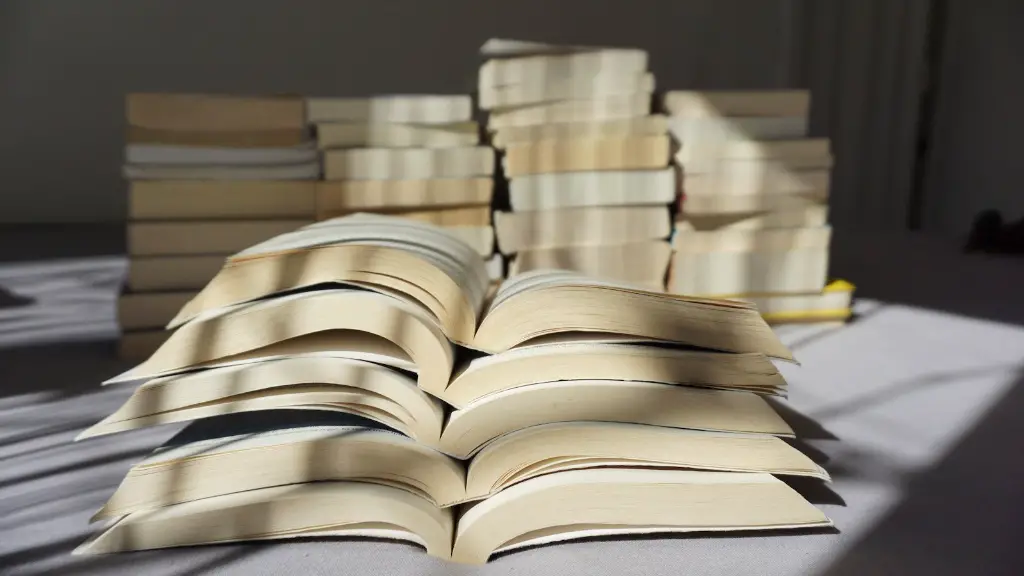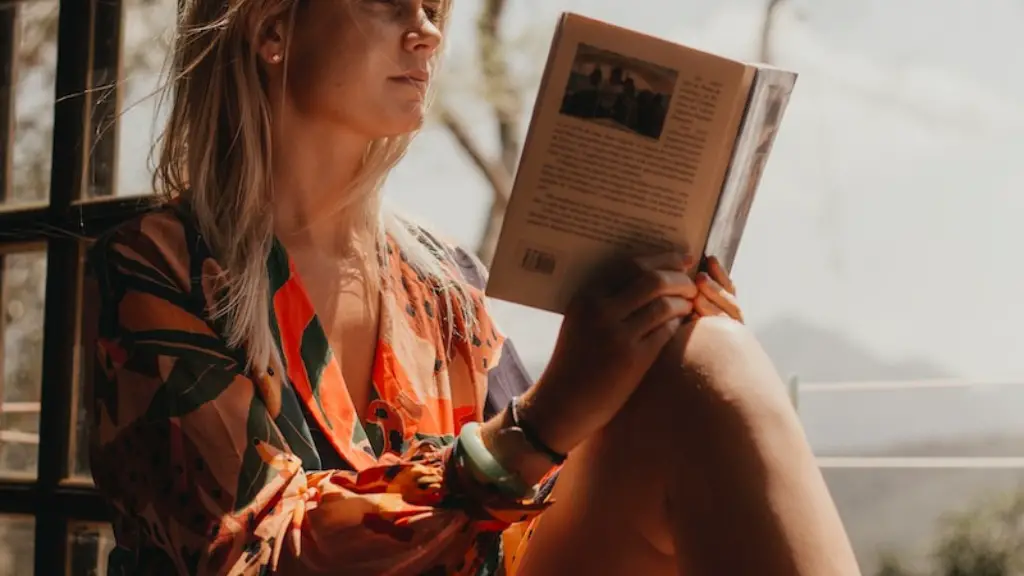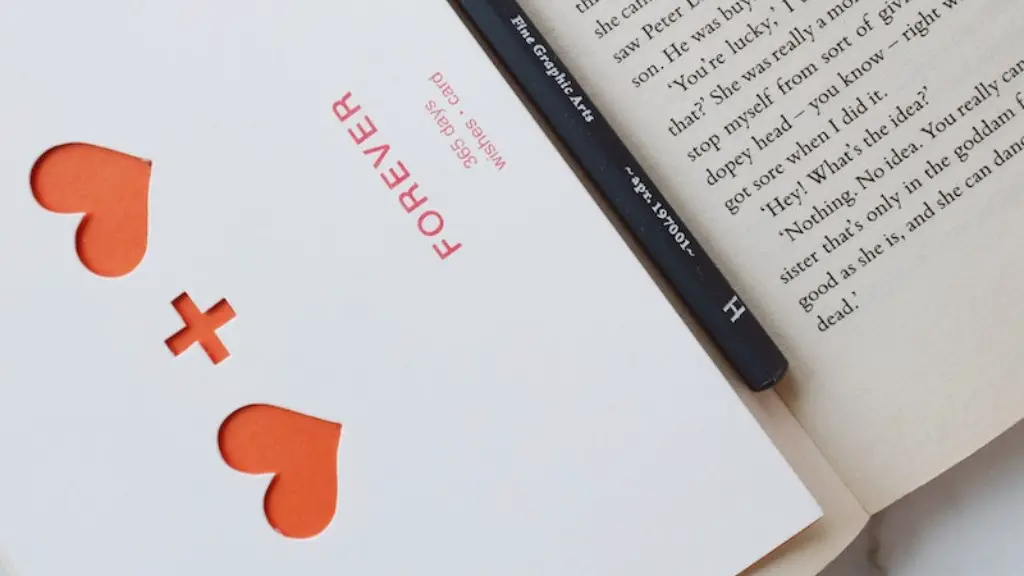Verse vs Poetry
Verse and poetry are expressions of art which can often be confused. People may think they are interchangeable when they are actually two separate forms. While there are a lot of similarities, understanding their differences is important when discussing them.
Verse is typically categorized as a type of poetry, but it is not the same thing. Verse is a collection of lines that have rhythm and form. They have musical qualities to them, and it is often described as “musical speech” because the sound of the poem is just as important as the meaning of the words. Verse often follows a specific pattern and there is a lot of technical craft that goes into a piece of verse.
In contrast, poetry is characterized by its use of words and imagery to convey meaning and emotion. Poetry does not need to be limited to certain meters and forms. While some poetry does follow these guidelines, many pieces of poetry rely on other methods to convey its meaning. Poetry is often more free-flowing than verse and its only requirement is that it explains the writer’s thoughts and feelings in a way that can be understood by the reader.
Different writers use both verse and poetry to express themselves. Many writers who appreciate the use of rhythm, structure, and form use verse as a way to think through their ideas and express themselves in a more controlled manner. Poetry, on the other hand, is often favored by writers who want to take a more experimental approach and allow their ideas to take the form, rhythm, and structure that best expresses the ideas.
The main difference between these two forms is the structure. Verse has a very rigid structure and is often quite formal, whereas poetry is more organic and expressive. That being said, it’s important to note that these two forms aren’t mutually exclusive. There are many pieces of art that utilize both forms, and a good artist will be able to make use of both.
Writing with Verse vs Poetry
Writing in verse or poetry is an intensely personal experience which requires the writer to hone their craft. Verse has very specific rules and guidelines, and it requires the writer to be precise and methodical in their approach. On the other hand, writing poetry can be a much more free-flowing experience as the writer is able to explore the ideas that jump out of their mind. However, this does not mean that writing poetry is easier. A poet needs to be a master of language and have an in-depth understanding of the words and concepts they are using.
When deciding which form to use, it is important to consider the purpose of the piece. If the purpose of the writing is to explore ideas and express emotions, then poetry would likely be the better choice. If, however, the aim is to craft lyrics, rhymes, and rhythms, then verse would be the more appropriate choice. Ultimately, the type of writing should be determined based on the purpose and style that best fits the writer’s intent.
Joshua vs Naomi’s Writing
Joshua is a writer who loves exploring ideas through verse. He enjoys the structure of verses and intertwining them with different meters. His writing is precise and structured. He puts a lot of thought into each of his pieces and tries to make every line as powerful as possible.
Naomi, on the other hand, is a poet. She favors a more expressive approach and loves playing with words and images. Her poetry is a form of self-expression, and she often writes from the heart. She uses her writing as a way to explore personal experiences and try to make sense of the world.
Joshua and Naomi are both writers who have their own unique approaches to the art form. While there are similarities between their writing, it is clear that their styles vary greatly depending on their purpose and intent.
Verse and Poetry in Education
Verse and poetry are often seen as an important part of education. Not only do they help students appreciate language and literature, they also provide tools to think critically and creatively. Verse and poetry can open up new avenues of thought and understanding. They give students the opportunity to express their thoughts and ideas in a structured and organized manner.
Many schools already include both forms in their curriculum. Students are taught the basics of verse and how to craft a poem. They are also taught about the different forms of poetry and the use of imagery and metaphor. By integrating both forms into the curriculum, teachers can open up new ways of thinking and allow students to explore their thoughts and emotions in a safe and secure environment.
Verse and poetry also have applications outside the classroom. Not only can they be used to express emotions, but they can also provide tools to think critically and develop thoughtful solutions. By studying these forms, we can learn the power of words and how to use them to create meaningful pieces of art.
Verse and Poetry in Today’s World
Verse and poetry are being used in more ways than ever before. People are writing and performing spoken word poetry to make their voices heard. Poetry is also often used to create political and social change, with artists using their words to inspire people to take action.
Social media has also played a major role in the popularization of both forms. People can now easily share their verse and poetry with a large audience. This has opened up a space for people to express their thoughts and ideas in an accessible and public manner.
Overall, verse and poetry are becoming increasingly popular as an outlet for creative expression. Whether it be sharing a poem on Twitter or reciting a verse at an open mic, these forms allows us to express ourselves in a unique and meaningful way.
The Power of Verse and Poetry
Verse and poetry can have a profound effect on the readers or listeners. It can help connect people to themselves and their emotions in a way that few other forms of art can. It can be a powerful source of inspiration and motivation, and it can even help people make sense of the world around them.
Verse and poetry can also provide comfort and solace during trying times. Even in difficult moments, these forms of art give us a tool to express ourselves with clarity and passion. By understanding and appreciating the power of these forms, we can open up our minds to new ways of thinking and feeling.
The beauty of these two forms of art is that anyone can appreciate them. Regardless of experience, anyone can find something to connect with, be it comfort, understanding, or inspiration. That’s why verse and poetry will forever remain popular, cherished, and appreciated.




